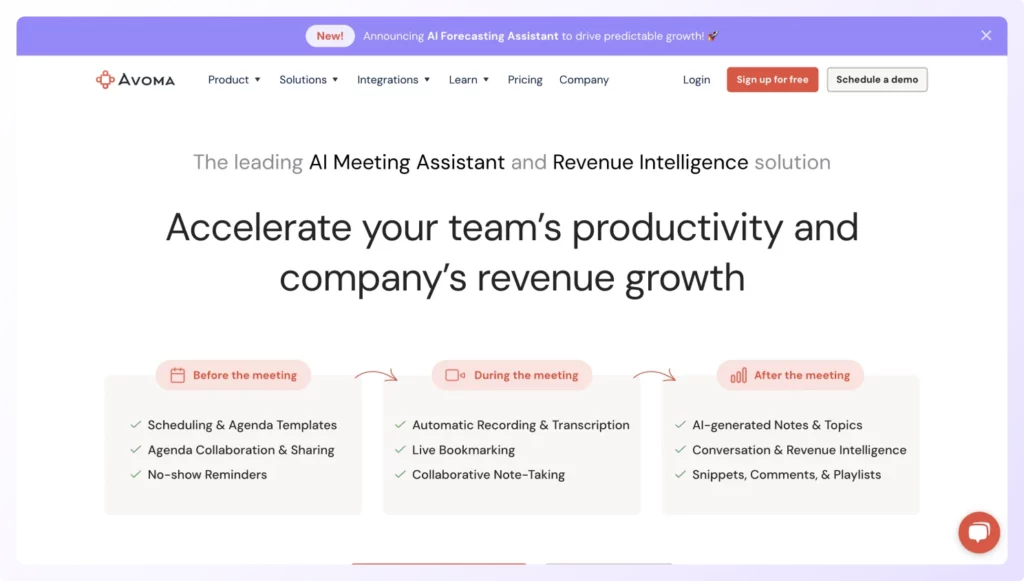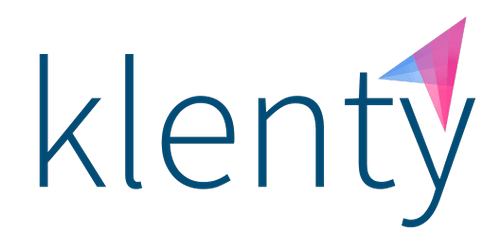Sales call coaching is the unsung hero behind driving a sales rep’s performance. This simple practice is all it takes to make your sales reps close deals faster and more efficiently.
Sales coach, Anthony Iannarino, says, ‘If sales is a number game, the number isn't phone calls or meetings. It also isn't the value of their pipeline. If sales is a number game, that number is the salesperson's win rate.’
As a sales manager, you know this better than anyone. Driving your sales rep’s win rate isn’t a one-time thing that gets tackled by simple feedback. Rather, it’s an ongoing activity that requires you to harness your experience and techniques to help your sales team shine. And the best way to do it? By recording your sales calls.
To get you started, here we give you the complete guide to sales call coaching, including 5 stellar techniques to help you make the most of it.
What Is Sales Call Coaching?
Sales call coaching is the process of leveraging actual sales calls to help sales reps understand their shortcomings and recognize areas of improvement.
As part of sales call coaching, sales managers guide and train sales reps using recordings of sales calls. It is not a one-time event or a standing weekly appointment with the boss. Instead, it’s a continuous activity where the sales manager invests their time into improving their sales rep’s performance.
As a sales manager, the best way to understand sales call coaching is to think of yourself as a Sensei. In martial arts, Sensei is the title given to the teacher.
Just like Sensei trains their pupils, sales managers must also coach their sales reps to smash the metaphorical brick of sales quota efficiently.
Why is Sales Call Coaching Important?
While sales call coaching might seem like it only concerns sales leaders and sales reps, its positive impact goes far beyond. By helping drive the efficiency of the bottom line, sales call coaching ensures the entire team not only stays on track but thrives as well.
Here are some of the benefits of sales coaching:
1. Build Long-Term Relationships With Prospects
Forget what the internet is saying about sales not being about relationships anymore. Sales has always been and always will be about building long-term relationships with your prospects.
And so, apart from closing deal, a well-coached sales team also excels at nurturing relationships with their prospects. They envision the long haul and approach their sales calls with an aim to encourage prospects to grow with their product and hopefully upsell to them in the future.
Efficient sales call coaching facilitates these long-term goals for prospects by observing, assessing and training sales reps.
2. Improve Performance to Close More Deals
Sales call coaching helps you enhance your sales team’s performance. By analyzing their sales call recordings and identifying each rep’s specific strengths and weaknesses, you can coach them according to their particular skill set.
This doesn’t mean nit-picking but instead focusing on the most high-value segments of your rep’s sales call. Zero in on them and discuss those parts in detail to outline how the rep can improve their sales skills. These could be anything from handling sales objections to how particular product features are being communicated.
3. Optimize Your Sales Process
Sales managers have a lot on their plate. From managing their sales teams, analyzing sales reports, setting sales quotas, and ensuring all sales-related operations run smoothly. In other words, while sales call coaching might be a significant part of your job, you have a responsibility to look at the big picture as well.
And what makes the big picture? The smaller pictures, aka your sales reps. And so, to optimize your sales process, you must ensure each sales rep is meeting their sales quota effectively. Sales call coaching does just that. By allowing you to keep track of each rep's performance, it ensures your sales process remains smooth-flowing and working optimally.
Challenges in Coaching Sales Calls
If sales call coaching is something that you’re just introducing to your sales team, there are bound to be some hiccups along the way. You see, while sales coaching might seem like a pretty straightforward process, in reality, it might require a nuanced approach, which develops with time. However, it's never a bad idea to learn from the mistakes of those before us.
And so here are some of the most common challenges faced by sales managers while coaching their teams
1. Lack of Understanding What Sales Call Coaching Is
To do sales call coaching right, you first need to understand it properly. After all, if you’re approaching it all wrong, the journey from there is only going to be downhill.
Sales call coaching is not about feeding the child but showing them how to gather food. It’s about equipping your sales reps to identify their problem areas, be self-aware, and take necessary action to elevate their sales performance.
That means, firstly, leveraging sales calls to analyze what sales reps are doing right and what they could be doing better. And then helping them do the same. Have them recognize problem areas and strengths, and soon, you’ll have given them enough to keep growing without your precise directions
2. Not Investing Enough Time
As we discussed earlier, sales call coaching is not a one-time event but an ongoing process that requires participation from both you and the sales rep. And when we say participation, it is not limited to simply turning up and contributing to the discussion.
But rather taking the time to analyze the sales rep and what measures can be taken to help them improve.
This is, however, easier said than done when we look at the ground reality. Sales calls can range from 30 minutes to an hour to even more. For managers to sit in on these calls to analyze their team, the time alone can make them flinch, especially considering the opportunity cost. After all, sales coaching, while important, is not the only thing on a sales manager’s plate.
So, do keep in mind that sales call coaching requires time.
3. Difficulties in Measuring Success
One of the most significant challenges of sales call coaching is the inability to measure whether your coaching is having its desired effect. You see, coaching is highly dependent on unquantifiable aspects such as a sales rep's ability to listen to the prospect effectively, respond correctly, tackle sales objections, keep control over the conversation without sounding pushy, etc. After all, whether your sales rep has learned how to manage sales objections is something you’ll learn over weeks if not months.
As a result, it is difficult to judge if there is improvement on these fronts. The fruit of your coaching will likely be visible only after weeks of dedicated effort. However, sales managers aren’t afforded the same courtesy. They often have to work with short sales cycles, high-velocity sales teams, and demanding sales targets.
The gap between what sales coaching can do and the time it takes to do is one of the biggest challenges faced by sales managers.
5 Best Techniques for Sales Call Coaching
Now that you have all the theory, let’s talk about the practical side of your coaching sessions. Effective sales coaching requires sales leaders to take a hands-on approach to showing sales reps the way forward. Sounds cryptic?
Let’s clear that out. Here are 5 top techniques to help you get the most out of your sales coaching sessions.

1. Use Valid Sales Data
You already have the data—you just need to use it. One of the best ways to drive the impact of your sales call coaching is to leverage data from your sales management software. Sales call coaching without any data can not only be intimidating and overwhelming but can also prove to be counterproductive in the long run.
For instance, you need to know which sales reps aren’t able to perform and who are. If you go in blind and start coaching the entire sales team based on a sales call coaching template, you’ll be wasting precious time and most likely fixing something that’s working just fine.
So, the best way to start sales call coaching is to first look at your data. Are your sales reps meeting the optimum talk-listen ratio? Are they handling objections effectively enough to satisfy prospect doubts? Answering these questions will help you better understand your sales reps and their issues.
2. Be Present During Sales Calls
The next technique requires you to observe your sales rep in real-time by sitting in on their sales call. Being away from the action, it’s possible you don’t have the latest information on what your prospects are thinking. But sitting in on calls allows you to observe from the front-row seat and gain a better understanding. This gives you valuable insights into your team’s sales performance, buyer momentum, and customer satisfaction. Based on this, you can strategize the approach to sales coaching, given the current ground reality.
3. Analyze Sales Calls
Sales call recordings allow you to analyze your sales conversations carefully. By doing this, you can recognize sales strategies, techniques, and conversation styles that are generating positive results consistently. Here is how you can analyze your sales calls:
- Access your sales team’s recordings.
- Identify specific sales techniques and strategies you want to examine. These could be the way a sales rep starts a call, tackles objections, or steers the conversation back to the product in case the prospect is straying.
- Listen, analyze, and take notes.
- Zero in on patterns, practices, and trends.
- Extract key learnings and actionable tips.
Following the above process will help you get the most out of your sales call recordings.
4. Let New Reps Shadow Calls
Allow your new trainees to become apprentices with your successful sales professionals. Empowering new reps to shadow and sit in on your live sales call allows for a much more enriching learning experience than listening to past recordings or reading call transcriptions.
While those aren’t redundant and serve their own purpose as training material, allowing new reps to shadow calls lets them pick up on other aspects of sales calls, such as tone, voice, and the like. Not only that, it also helps new reps get more comfortable with sales calls as they listen to how smoothly your experienced sales reps manage the call.
However, you must ensure that the presence of a new rep is not intrusive to the sales rep managing the call. They should simply be background observers, such as an audience to a play, taking in what’s happening on the stage.
You can do this by encouraging them to maintain a respectful distance during the call and reminding them to save any questions or discussions for later. This helps them gain valuable insights from experienced sales professionals without affecting their productivity.
5. Have Valuable Resources Handy
Lastly, be sure to supplement your sales call coaching with additional resources. These could be podcasts, winning sales call templates, past sales call transcripts, courses, or even good old online blogs.
The reason why this is important is the simple fact that you have limited time with each sales rep. So, it's important you give them additional resources to help them continue their growth process on their own time and take responsibility for their success as well.
This way, you and your sales rep can make the most out of each coaching session.
Top 5 Sales Call Coaching Software to Boost Rep Performance
As you must have deduced by now, sales call coaching is a rigorous exercise that requires sales managers to take a customized approach to each sales rep to polish their skills. Now, considering sales managers have an entire sales team to coach, doing all this manually can be a recipe for disaster.
So, an important ingredient for effective sales coaching is sales call coaching software. These tools leverage conversation intelligence (CI) to help sales coaches gain targeted insight into each sales rep’s calls, facilitating more focused and effective sales training.
Here are 5 top sales call coaching software you should consider:
1. Call IQ
Call IQ by Klenty offers sales managers visibility into their sales rep’s calls, along with powerful insights to identify the strengths and weaknesses of each sales rep.

With Call IQ, instead of having to spend days analyzing sales conversations, sales managers can review calls promptly by simply logging into Call IQ.
Here are some of Call IQ’s leading features.
- Tracks Rep Talk Time:
Call IQ provides talk time metrics - meaning, sales managers will be able to know how much their reps spoke on call vs. the prospect. This helps identify whether the rep is engaging the prospect enough to understand their pains and concerns.
- Transcribes Sales Calls
Sales managers don't always need to listen to sales recordings. They can simply skim through the sales call transcription that Call IQ generates within minutes of the call.
- Summarizes Sales Calls
Call IQ’s sophisticated software offers 4 AI-driven sales call summaries for heightened visibility and scannability. The Spotlight Summary highlights the important points discussed during the sales call. The Action Items summary sheds light on the next steps discussed during the call. In other words, any actions to be taken in the future, whether from the prospect’s side or the sales rep’s side, are noted within this summary.
The Questions Asked summary, as the name suggests, lists down the questions raised during the call. And lastly, the Sentiments summary collates all positive and negative sentiments during the call.
- Coach Instantly via Comments and Mentions
Sales managers can tag reps and leave comments on highlighted areas of the transcript for instant coaching. This way, they don't have to wait until the 1-on-1s to interrogate reps on what happened and relay feedback. Instead, they can focus on improving rep performance and guiding them to hit their targets.
2. Gong
This sales call coaching tool allows sales managers to delegate most of the heavy lifting to automation. By offering features such as sales call recording, transcribing, and analysis, Gong offers action-ready reports to sales managers to work with.

Further, it also facilitates easy sales call sharing for quick feedback. Not only that, Gong also integrates your B2B sales team’s performance benchmarks instead of hinging its reports on external coaching methodology.
These features allow sales managers to access all necessary sales call data, cutting down on tedious, manual work to give more time for actual sales call coaching.
3. Mindtickle
Mindtickle is a conversation intelligence software that you can integrate to drive the success of your coaching session. This tool offers an interesting coaching room feature that gives sales managers visibility into sales calls and the rep’s performance. Here, the sales manager can gain a bird-eye view of all coaching sessions, both active and scheduled, for greater clarity.

Apart from this, Mindtickle also empowers sales managers to take a personalized approach by offering sales call data for each sales rep. This helps sales managers examine each sales rep’s individual set of skills and how best to improve them.
4. Clari Copilot
Clari Copilot’s CI platform allows sales managers to gather insights from sales calls in order to help reps close deals faster. Some of its interesting features include call tracking, monologue alert, and talk-to-listen ratio.

The call tracking feature allows the sales manager to gain insights into details such as the duration of the call. The monologue alert feature flags those sales calls where the sales rep might have spoken for a longer time than advised, jeopardizing the prospect’s interest and attention. Lastly, the talk-to-listen ratio builds on the earlier feature to inform the sales manager of how much time the sales reps are taking to understand their prospect’s perspective and pitch accordingly.
5. Avoma
This sales call coaching tool allows you to put your coaching on auto-pilot with its AI-driven capabilities. Its auto-scoring feature scores each call to help sales managers tackle low-performing sales calls on priority. Further, its AI scoreboard removes any chance of subjective bias in coaching by allowing each call to be marked in an objective yes/no manner.

Not only that, sales managers can also track whether sales reps are following their guidelines and feedback through the scorecard performance dashboard. Lastly, with Avoma’s AI performance insights, you can create personalized and focused coaching initiatives for each sales rep as well.
Resources You'll Love
FAQs
1. How do you coach a sales call?
It empowers them to get a closer look at each rep’s sales calls, allowing them to understand how best to coach them.

